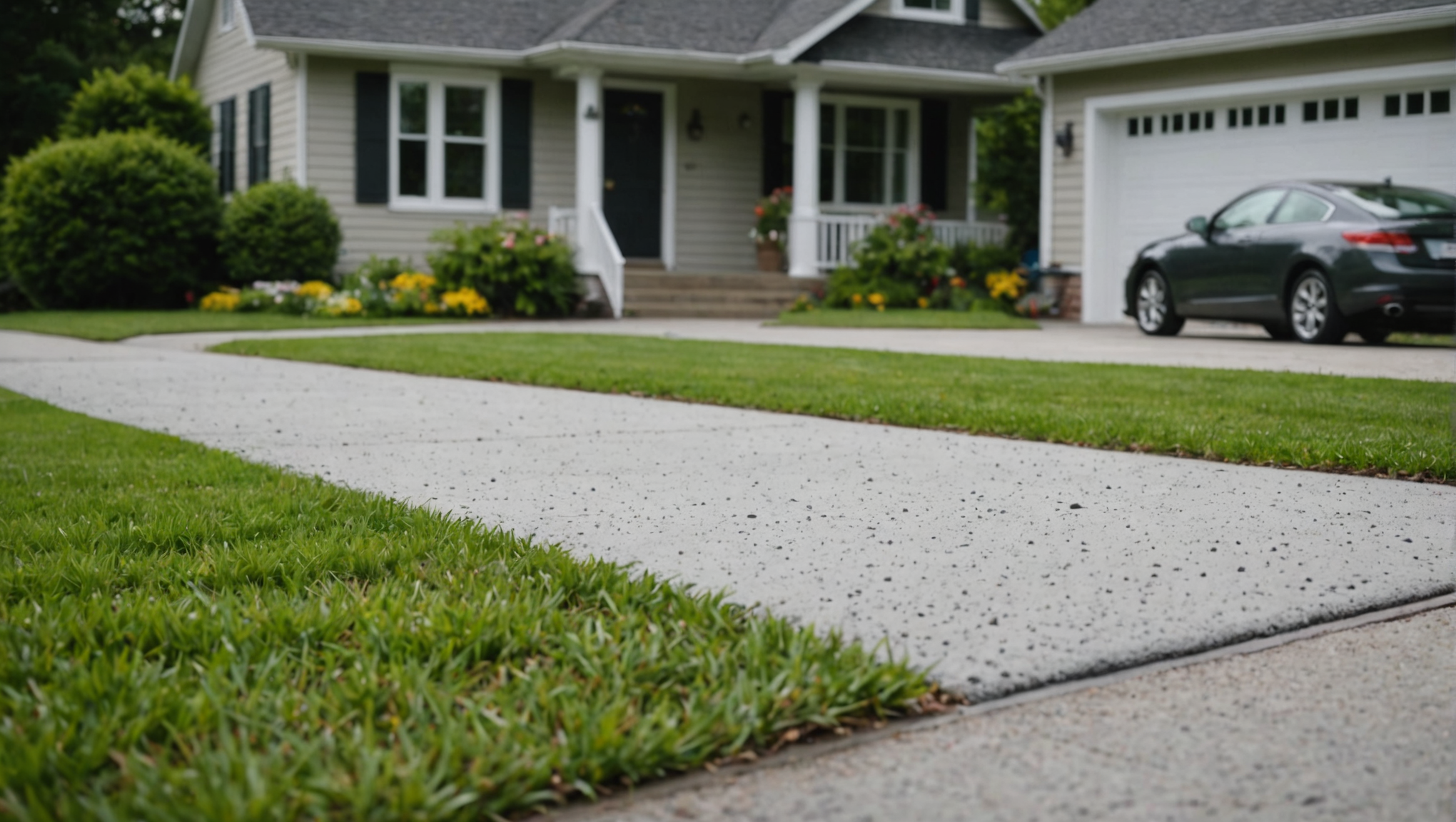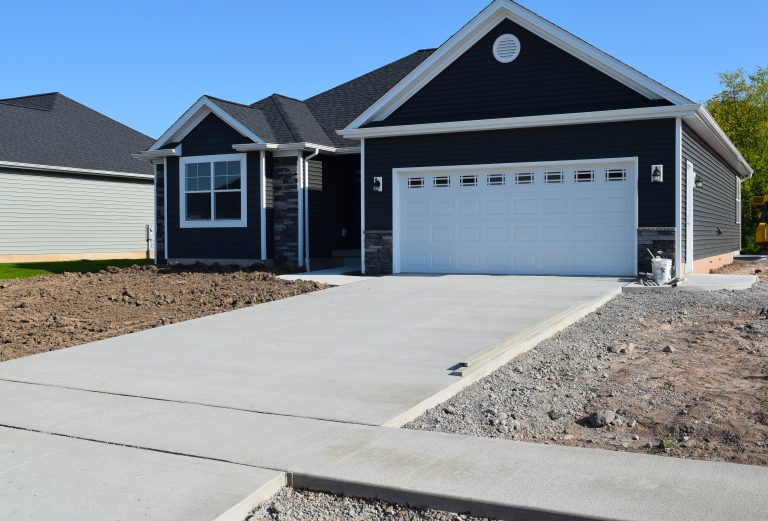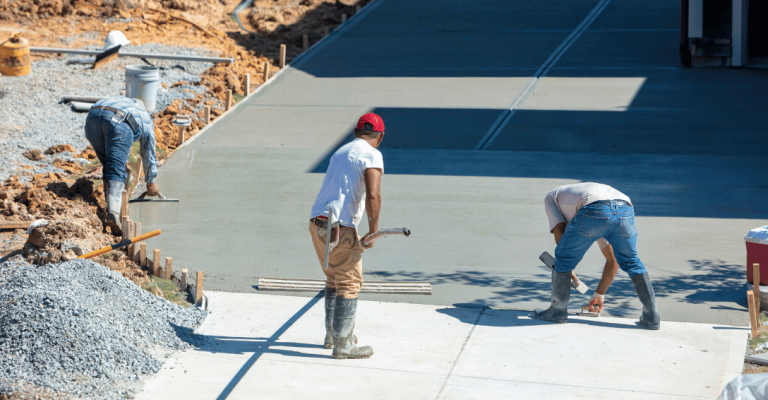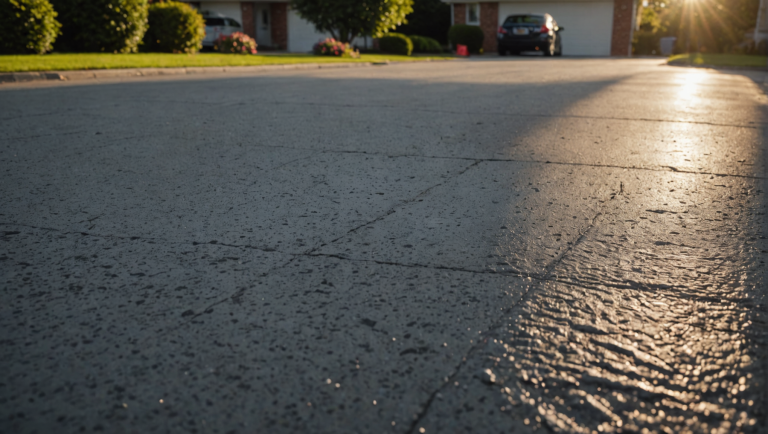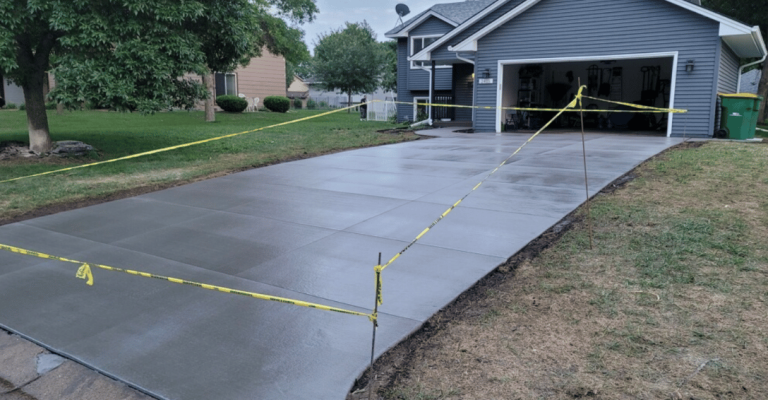Concrete Driveways for Hot Climates Offer Surprising Advantages
While often overlooked, the material selection for driveways in hot climates can have a substantial impact on both user experience and environmental footprint. Concrete driveways, for instance, present an intriguing case study due to their heat-resistant properties and durability. These driveways not only provide a more comfortable surface underfoot in sweltering temperatures but also contribute to moderating urban heat effects. The long-term resilience and minimal maintenance requirements of concrete surfaces may offer significant cost-efficiencies. It is worth considering the potential benefits of concrete driveways in hot climates from both a practical and an environmental perspective.
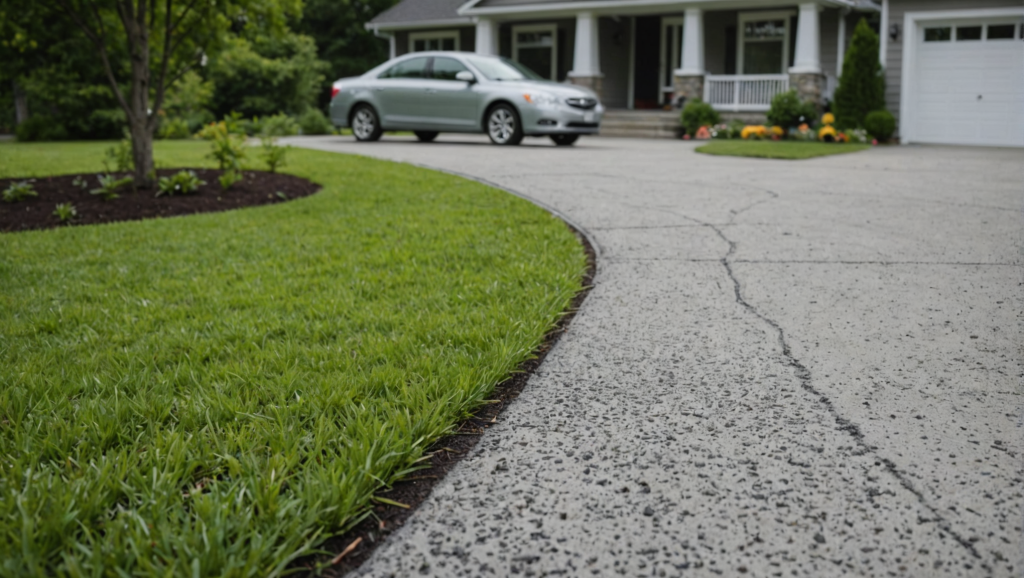
Understanding Concrete Properties
To appreciate the suitability of concrete for driveways in hot climates, it is essential to explore its intrinsic properties, which fundamentally determine its performance under such conditions. Concrete, a composite material, primarily consists of cement, water, and aggregates. These constituents collectively impart strength, durability, and resilience to concrete, making it a preferred choice for driveway construction.
One of the significant properties of concrete is its thermal mass, which refers to its ability to absorb, store, and slowly release heat. This characteristic allows concrete driveways to remain relatively cooler during the day and warmer during the night, which is particularly advantageous in hot climates.
Furthermore, concrete driveways exhibit high reflectivity, meaning they can mirror more sunlight and absorb less heat. This feature not only helps in reducing the surface temperature of the driveway but also contributes to lowering the surrounding air temperature.
Lastly, the high compressive strength of concrete guarantees it can withstand heavy vehicles’ weight without cracking or showing signs of distress. This property, combined with concrete’s resistance to wear and tear, makes it an excellent material for driveways in hot climates.
In essence, the inherent properties of concrete underscore its suitability for constructing driveways, particularly in hot environments.
Heat-Resistant Characteristics
Building upon the inherent properties of concrete, it becomes imperative to explore its heat-resistant characteristics, which enhance its suitability for driveways in hot climates. Concrete is a composite material, composed primarily of water, aggregate, and cement, that presents a high thermal mass. This means it can absorb, store, and later release a significant amount of heat, thereby moderating temperature fluctuations and providing a cooler surface underfoot compared to asphalt, which tends to absorb and retain heat.
The heat-resistant nature of concrete is anchored in its low thermal conductivity. This property slows down heat transfer, thereby reducing the surface temperature of a concrete driveway compared to other materials.
Moreover, light-colored concrete has a high albedo, or reflectivity, which means it reflects a higher proportion of solar radiation than darker surfaces. This reflection aids in minimizing heat absorption and maintaining a cooler surface temperature.
Durability and Maintenance Ease
Concrete driveways, particularly in hot regions, offer exceptional durability and require minimal upkeep, providing a long-term solution for homeowners and property developers. The inherent strength of concrete, combined with its thermal stability, guarantees that it can withstand high temperatures and prolonged exposure to the sun without deteriorating. This resilience to weathering also means that it is less likely to crack or become damaged, reducing the need for frequent repairs or replacements.
The ease of maintenance associated with concrete driveways cannot be emphasized enough. Unlike other materials, concrete does not need constant resealing to preserve its appearance and functionality. Simple cleaning methods, such as power washing, are generally adequate to keep the driveway looking fresh and new. This not only saves time and effort but also reduces the cost linked with regular upkeep.
Moreover, the uniformity of concrete allows for easy detection of any potential issues. If damage does occur, repairs can be localized and carried out without affecting the rest of the driveway, ensuring a seamless aesthetic and structural continuity. Ultimately, the durability and low maintenance requirements of concrete driveways make them an advantageous choice for hot climates.
Environmental Impact
Considering environmental factors, it should be recognized that concrete driveways in hot climates can also contribute positively to the sustainability and eco-friendliness of a property. Concrete, being a highly reflective material, helps to cool the surrounding area by reflecting sunlight rather than absorbing it, reducing the urban heat island effect. This reduction in heat absorption can also decrease the energy needed for cooling buildings, thereby lowering greenhouse gas emissions.
In terms of water consumption, concrete driveways are advantageous. They require less water for maintenance compared to asphalt ones, as they don’t need regular sealing. Additionally, permeable concrete options allow rainwater to permeate into the ground, replenishing groundwater reserves and reducing runoff that can lead to erosion and water pollution.
Moreover, concrete is a recyclable material. Old or damaged concrete driveways can be crushed and reused, reducing waste and the need for new raw materials. As part of the green building movement, this aligns with the ethos of resource efficiency and circular economy, fostering a sense of stewardship towards our environment.
Cost-Effectiveness Over Time
When evaluating the long-term financial impacts of concrete driveways in hot climates, their durability and low-maintenance nature make them a cost-effective choice. Concrete driveways, due to their sturdy construction, resist weathering, erosion, and the extreme heat commonly associated with such climates.
Consider the following comparative analysis:
| Cost Factor | Concrete Driveway |
|---|---|
| Initial implementation | Higher upfront cost, but longer lifespan. |
| Maintenance requirements | Low; occasional sealing needed. |
| Durability | High resistance to hot weather and heavy usage. |
| Replacement frequency | Lower; lasts up to 30-40 years. |
| Long-term expenditure | Lower overall due to less maintenance and replacements. |
Given the above, the initial investment in a concrete driveway may be higher, but the subsequent savings on maintenance and longevity greatly offset this. Regarding durability, concrete driveways outlast alternatives like asphalt, especially in hot climates, where the latter can soften and degrade more rapidly.
Therefore, concrete driveways offer a financially prudent solution for homeowners in hot climates, providing a sense of belonging and pride in their property’s appearance while also being mindful of their long-term financial commitments. This makes them a sustainable, economical choice for long-term property investment.
Frequently Asked Questions
Can Concrete Driveways Be Customized in Terms of Design and Color?
Yes, concrete driveways are highly customizable when it comes to design and color. They can be stamped, dyed, or stained to achieve a variety of aesthetic outcomes, facilitating a sense of personalization and belonging for homeowners.
Whats the Average Installation Time for a Concrete Driveway?
The average installation time for a concrete driveway hinges on factors like size and complexity of design, but typically ranges from 2 to 5 days. Weather conditions can also impact the duration of the installation process.
How Does a Concrete Driveway Fare in Cold Climates or Severe Weather Conditions?
In cold climates or severe weather conditions, concrete driveways can exhibit less durability. Freeze-thaw cycles may cause cracking and damage. However, with proper installation and maintenance, these issues can be substantially mitigated to prolong driveway lifespan.
How Can I Prevent My Concrete Driveway From Staining or Discoloration?
Preventing staining or discoloration on your concrete driveway can be achieved through regular cleaning, immediate stain removal, and the application of a quality sealer. Regular upkeep guarantees your driveway’s aesthetic appeal and longevity.
Are There Any Special Permits Required for Installing a Concrete Driveway?
Permit requirements for installing a concrete driveway can vary based on local regulations. It’s advisable to consult with your local municipality or building department to guarantee compliance with all necessary building codes and permit procedures.

